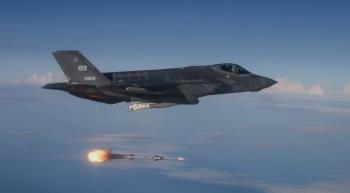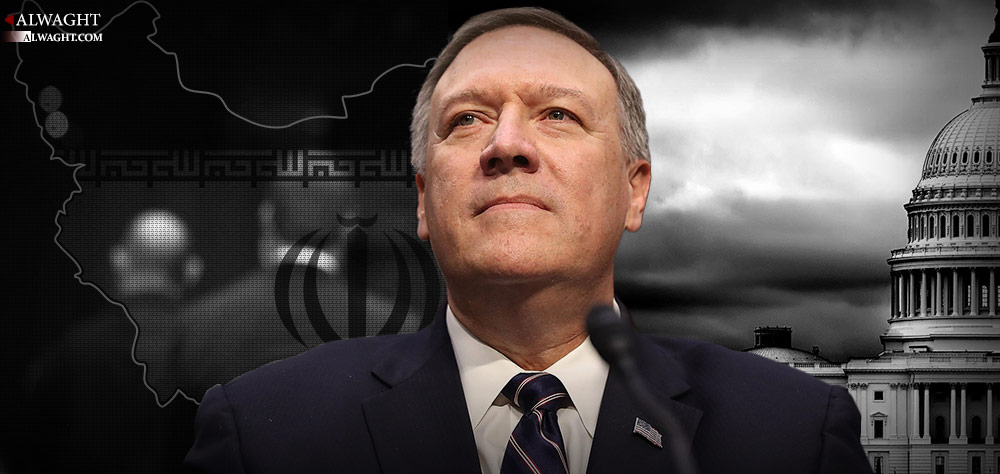Alwaght- Newly-installed US Secretary of State Mike Pompeo laid out a 12-point list of demands from Iran on Monday, and threatened the country with the “strongest sanctions in history” if Tehran fails to fulfill them.
Pompeo’s remarks came two weeks after US President Donald Trump withdrew from Iran nuclear deal. Since his campaign-time speeches, Trump called the deal “terrible” one, claiming it gave the US fewer-than-expected advantages and so needed reviewing. Based on this record, Pompeo’s demands are seen as laying the foundation for new negotiations and a new deal with the Islamic Republic.
In the first demand, Pompeo said that Tehran has to cease military aspect of its nuclear program. The default idea in this demand is that Iran’s nuclear program has a military side and is not peaceful. This comes while not only so far no document has proven Washington’s allegations about Iran’s developing a nuclear plan, but also the International Atomic Energy Agency has frequently substantiated peacefulness of the program. Iran is an official signatory of the Non-Proliferation Treaty (NPT), which aspires for a nuclear weapons-free world.
A second demand asks Iran to totally freeze its uranium enrichment. Asking this is against the international law because enriching the uranium for peaceful uses like providing nuclear reactors with fuel to produce power and also other uses like medical research and agriculture is an internationally-guaranteed right for any nation. Iran is no exception under any deal, and the Iranian insistence on this stems from a history lesson which tells Tehran it should do it by itself as in the past the US and other powers broke their promise of providing it with necessary enriched uranium. Instrumentally using the strategic products has a long history in the West. Last decade the West refrained from exporting gasoline to Iran before the West Asian nation relied on its domestic technologies towards self-sufficiency in this area.
Pompeo also called for the Iranian officials to allow unrestricted military sites inspections. A demand like this, many believe, is a sheer disparage of a nation’s mechanisms for preserving its national security and interests and sovereignty. With its geopolitically-strategic position, conflict of interests with the West, and also having regional rivals and opponents, Iran not only during the past four decades of the Islamic Republic’s life but also before that has been subject to military intervention. Iran will never allow inspection of its military sites because it will reveal military capability secrets to the US, an adversary which almost no month goes without it threatening Iran with military action. Iran’s missile program is a Pompeo’s focus here. Missiles are an integral part of Tehran’s deterrence strategy, and having them is never an anomaly. Because they are, as independent global experts assure, categorized as conventional weapons and not, as Pompeo claims, nuclear-capable.
Pompeo went on to ask Iran to release the American prisoners in Iran. The government of any country is responsible for making sure that order is kept and laws are implemented within their official borders. When traveling to other countries, the foreign citizens should respect the foreign countries’ rules. This is a basic principle in the international laws. If they violate the destination country’s domestic rules, they put themselves subject to legal actions. Iran has the right to exercise this right, too. Many countries sign criminal extradition pacts. Iran and the US do not. Naturally, there are special cases, like espionage, that endanger national security. States are ordinarily stricter when the case is criminal.
Pompeo also made allegations on what he called Iran’s support for terrorism and called for Tehran to end it. Some enlightenment is needed in this regard:
1. First, the US and the whole West’s explanation of the concept of terrorism has never been separate from their policy to realize their interests and expand their intervention across the world, particularly in the highly sensitive West Asia. Labeling Lebanese Hezbollah and Palestinian Hamas movements as terrorist organizations by the US while they only resist decades-long brazen Israeli aggressions against their territories signals nothing but the instrumental use of terrorism concept. The world unanimously opposed the US recognition of Al-Quds (Jerusalem) as the Israeli regime’s capital and relocation of US embassy to there. Trump administration very arrogantly shrugged off the global backlash and UN resolutions in support of the Israeli regime which wages regional wars and massacre of Palestinian children and women, but it simultaneously labels Iran’s pro-Palestinian support as an act of backing terrorism.
2. The second point is about Pompeo’s ridiculous allegations of Iran’s support for Taliban and al-Qaeda, two Afghanistan-based militant organizations apparently founded in the 1980s by the CIA and Pakistan’s intelligence services and with bankrolling from US ally Saudi Arabia to fight the Soviet Red Army in Afghanistan. Moreover, the two organizations’ takfiri ideology and nature, associated with the Saudi-backed fundamental Wahhabism, is on an apparent collision course with mainly Shiite Iranian government. Needless to say, Washington and Riyadh after the Soviet collapse mobilized the extremist groups to curb the increasingly-influential Iranian Islamic Revolution’s pro-independence discourse among the Muslim nations of the region. ISIS terrorist group, an upgraded version of the two, as the former US Secretary of State Hillary Clinton made clear, was founded by the Americans and Saudis. Iran, since the outset of one of the history’s most barbarous terrorist groups, supported the two target states Syria and Iraq to check its expansion. Tehran helped deal it fatal blows before it was announced defeated in the two hot spots later last year. Recent documents suggest that the US is transferring the terrorist group to Afghanistan for a final destination of Central Asia to press rivals China and Russia and also as a justification for its military presence in the region.
3. Pompeo also raised so-called Iran’s support for Yemen’s Ansarullah, a resistance movement whose country is under a full Saudi-imposed air, sea, and ground siege since 2015, the year Riyadh and Arab allies waged a destructive war on Yemen to reinstall a president the Yemenis ousted. The campaign, backed by Washington, has brought about famine, devastation, and diseases to the already-suffering nation, according to the UN aid agencies, causing a real humanitarian crisis. So far, Iran called both warring sides to negotiate and asked Saudis to end the war on their neighbor that has claimed lives of over 14,000 people and displace millions more.
The top US diplomat also asked Iran out of Syria and Iraq, signaling the White House leaders’ fury turned on Tehran after their plots for the region met their failure. Washington holds Iran’s anti-terror activism accountable for fall of its project to empower a wide range of terrorist groups in the region to help partition Syria and Iraq under Greater Middle East program, devised to serve Tel Aviv’s interests. On the behest of Damascus and Baghdad, Iran is supporting the two countries’ national armed forces in the face of terrorism.
With these facts in mind, Pompeo’s demands look nothing but a propagandistic show meant to break US isolation and steer clear of a diplomatic price generated by Trump’s nuclear deal pullout. The Trump administration is also regarded as a thank you response to Saudi Arabia’s cash injection into US economy via immense military purchases and also to the Zionist lobbies at home which effectively aided his election victory.



























